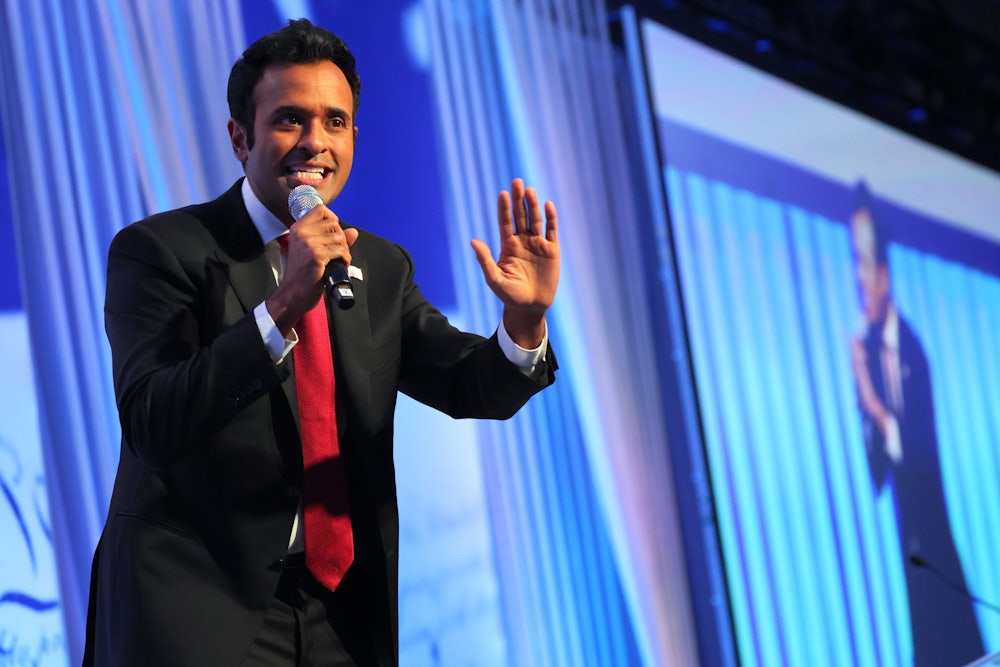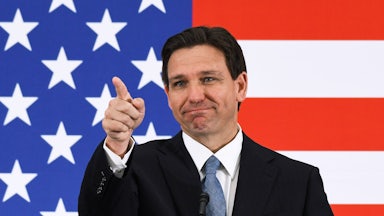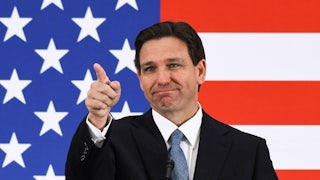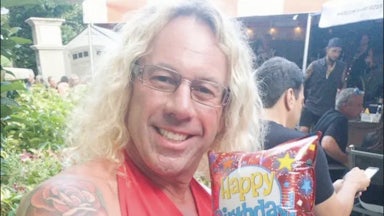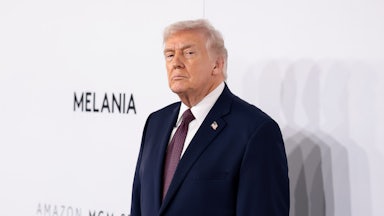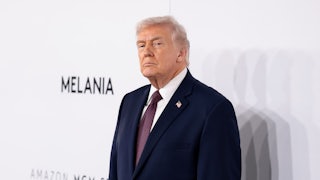Vivek Ramaswamy, a 37-year-old hedge-fund manager and businessman, is currently running in third place in the Republican presidential primaries in some polls. It is unlikely that he or anyone else will ultimately dethrone former President Donald Trump in the quest for the GOP nomination in 2024. But on Monday he helped entrench a new tradition for presidential candidates: publicly naming a short list of Supreme Court nominees.
According to Axios, Ramaswamy’s selections are Senators Ted Cruz and Mike Lee, federal appeals court judges Lisa Branch, John Bush, Thomas Hardiman, James Ho, Justin Walker, and Lawrence Van Dyke, and former Solicitor General Paul Clement. He told the news outlet that he wanted judges who “recognize the unique threats to individual liberty that we face today but who also are originalist in their interpretation of the Constitution.”
It was Trump himself who pioneered this tactic during the 2016 presidential election, which ultimately proved to be about the future of the Supreme Court. Antonin Scalia’s death that February produced a court with four conservative justices, four liberal justices, and one balance-tipping vacancy. Senate Republicans refused to consider any nominee from then-President Barack Obama, essentially punting the issue to the voters, who could have created the first liberal majority on the court since the 1960s by electing another Democratic president.
But while Hillary Clinton won the most votes, Trump won through the Electoral College and the narrowest of margins in a handful of key states. Republicans then replaced a third of the justices on the high court, aided by Anthony Kennedy’s retirement and Ruth Bader Ginsburg’s death. Confirming Neil Gorsuch, Brett Kavanaugh, and Amy Coney Barrett gave the conservative legal movement enough votes on the court to overturn Roe v. Wade, eliminate affirmative action in college admissions, issue a series of rulings to limit federal regulatory power, and more.
Ramaswamy’s own picks reflect Republicans’ success in remaking the federal judiciary during the Trump years. All six of his short-listers from the federal courts were appointed to their current positions by Trump himself. Hardiman was on Trump’s initial list of Supreme Court contenders in May 2016; Lee was on a second version of the list the Trump campaign released that September. The only one unconnected to Trump in any way is Paul Clement, a former solicitor general under George W. Bush who now frequently argues before the court in private practice.
Trump’s list was aimed at swaying then-hesitant legal conservatives to back his campaign by giving a tangible assurance that he would not abandon the right’s long-held dream of reshaping the high court in their own image. Naming a slate of conservative jurists also set up a sharp contrast between his own potential Supreme Court picks and those that Clinton would likely make. The effort worked, as Cruz himself endorsed Trump based on the names on the lists.
“For anyone concerned about the Bill of Rights—free speech, religious liberty, the Second Amendment—the Court hangs in the balance,” Cruz claimed in his endorsement message. “I have spent my professional career fighting before the Court to defend the Constitution. We are only one justice away from losing our most basic rights, and the next president will appoint as many as four new justices. We know, without a doubt, that every Clinton appointee would be a left-wing ideologue.” He noted that Trump’s short list “provides a serious reason for voters to choose to support Trump.”
The list of names Ramaswamy chose appears to reflect the candidate’s focus on culture-war battles. Democratic senators heavily criticized John Bush, for example, during the battle over his confirmation to the Sixth Circuit Court of Appeals (where he serves) over a controversial series of blog posts he made while working as an attorney in private practice. Ho and Branch both announced last year they would no longer hire law clerks from Yale Law School to protest what they saw as “cancel culture” by the faculty and student body. VanDyke has carved out a national reputation for his venomous writings on the Ninth Circuit.
Republicans aren’t the only ones who are announcing their Supreme Court picks in advance. While Democrats haven’t been releasing formal short lists of potential nominees, former President Joe Biden announced during his 2020 campaign that he would nominate a Black woman to the Supreme Court at the next available opportunity. “I’m looking forward to making sure there’s a Black woman on the Supreme Court to make sure we in fact get everyone represented,” he said during a debate on the eve of the South Carolina primary in 2020, where his victory helped revive his campaign and set him on a course to receive the nomination.
After Stephen Breyer retired last summer, Biden made good on that pledge by appointing Ketanji Brown Jackson to replace him. While there was no formal short list during the 2020 presidential election, the relative scarcity of prominent Black women on the state and federal courts—a statistical reality that influenced Biden’s overall strategy on judicial appointments—meant that only a handful of candidates at the time were considered likely. By this January, Biden had successfully nominated 11 Black women to serve on the federal courts, more than the rest of his predecessors combined.
Again, it’s unlikely that Ramaswamy’s list will change his own political fortunes. Trump and Biden made their own announcements to shore up key segments of their own political coalitions and secure a path to victory. But it further entrenches an expectation that presidential candidates will make some sort of guarantee about Supreme Court nominees to their voters on the way to the White House. And that, in turn, reflects what became an undeniable truth over the past few years: It is the Supreme Court, not the presidency or Congress, that is truly at the center of the American political universe.
